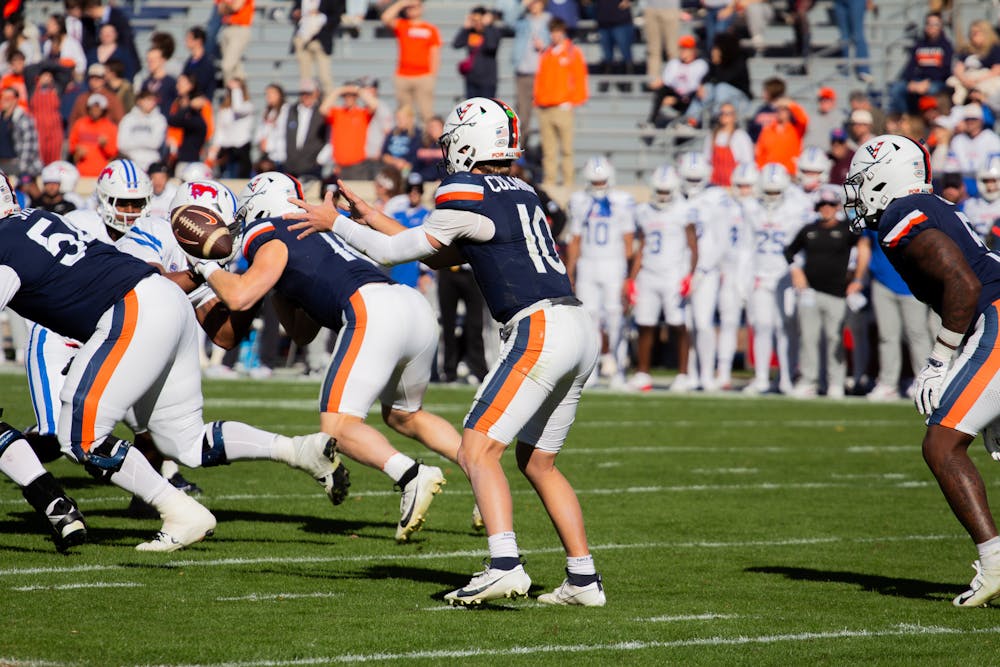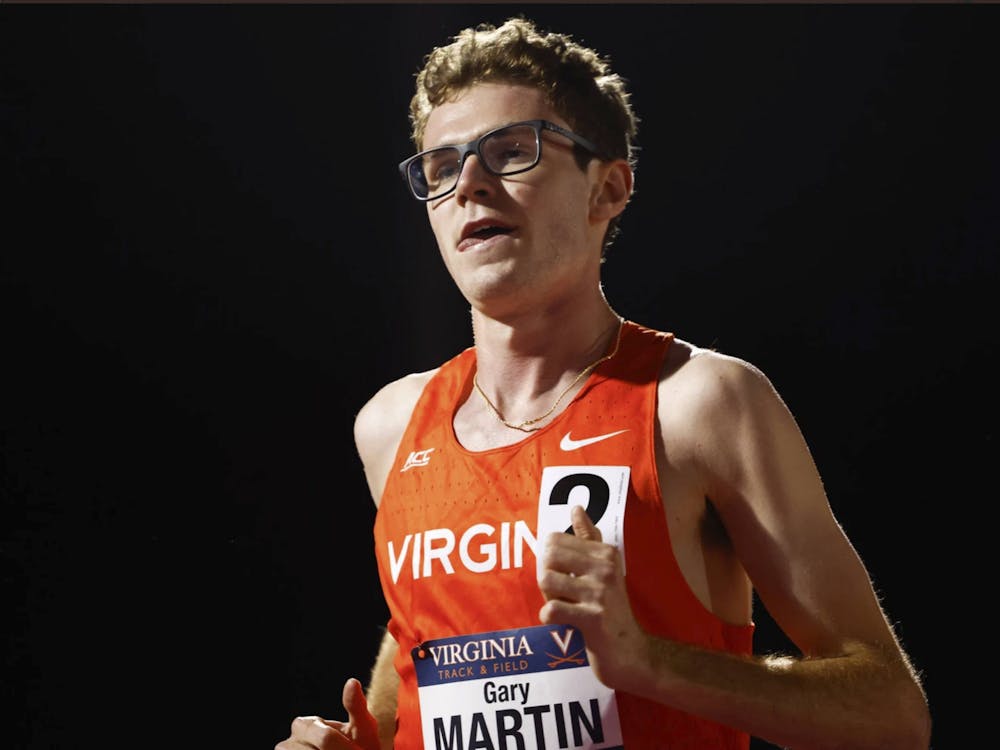Football makes money — and quite a lot of it. It is widely known that football is the most profitable college sport by an astronomically large margin. And because football is the cash cow of college sports, having a program that attracts fans and donors is essential for helping to fund programs that make less money such as tennis or swimming and diving. Football needs to succeed so that other programs have funding.
But now, an alarming trend is rising within this program. Despite the University investing $80 million in a new training facility this offseason, the team is improving at a rather slow pace. Sure, five wins in 2024 mark a stark improvement from years past. But this program could be so much more than it is right now. The Cavaliers cannot reach their true potential because their issues are self-inflicted. Those at the helm have demonstrated a ridiculous unwillingness to let go of their mistakes. Unless changes are applied via a new offensive coordinator — and maybe a quarterback — this program will never reach its full potential.
Many are quick to blame Coach Tony Elliott for the woes of the football program, but he is not the primary issue. Elliott has done an okay job on the recruiting trail with stars like sophomore linebacker Kam Robinson and has had to overcome otherworldly adversity such as the Nov. 2022 shooting. Elliott has been a solid coach, but he does have a tendency to overcommit to his personnel even when they should be removed, solely because he has already invested in them — known as the sunk cost fallacy.
In particular, Elliott seems unnecessarily committed to offensive coordinator Des Kitchings. The Cavaliers have promising playmakers on offense, but Kitchings turns wine into water at seemingly every possible turn. Virginia ranks 102nd nationally in scoring offense, second-worst in the ACC. In addition to simply being a poor offensive coordinator, Kitchings, like Elliott, has also refused to give up on his prior investments when his plans are not working. Virginia’s guards have struggled to block in the run game, but Kitchings continues to call run plays up the middle of the offensive line to no avail.
Perhaps most obvious, Kitchings and Elliott also have an extremely strong commitment to sophomore quarterback Anthony Colandrea despite his aggressively mediocre play. Colandrea may be talented, but he has thrown multiple interceptions in five games this year. And he has only thrown for more than two touchdowns in one game. That is comically awful football.
Meanwhile, a capable starter in graduate quarterback Tony Muskett sits on the sideline. Muskett absolutely deserves a chance to correct this awful offense. However, Elliott and Kitchings refuse to give up on Colandrea, and that decision may cost them their jobs.
Perhaps the decision to fully commit to Colandrea could be justified in the name of young player development, but Colandrea is not a rookie anymore. He has started 17 games in his career. This coaching staff likely fears that benching Colandrea will incite him to transfer, but that is a ludicrous rationale. If Colandrea leaves, so what? There are far more college quarterbacks than there are starting spots at the Division I level.
Even the Cavalier faithful have given up on this football program. Scott Stadium is at least 30 percent empty at seemingly every game.Throughout the first four home games of 2024, an average of 38,284 fans attended a game. Scott Stadium seats 61,500. And most recently, a mere 36,305 fans attended Virginia’s game Saturday against No. 13 Southern Methodist. And this is not surprising given that this team has scored 30 or more points just eight times in three years. In short, the on-field product is not great, and fans have obviously taken notice.
To be clear, Elliott is not the issue, but his tenure is becoming increasingly connected to Kitchings and Colandrea after every frustrating loss. If Elliott does not take action, he himself will be the scapegoat. Then there is another part of that chain to consider — Director of Athletics Carla Williams. Even though her tenure has been a smashing success with a bevy of national championships across multiple programs, some feel that the failures of the football program have overshadowed these successes.
College sports are businesses now. The development of student-athletes receiving compensation through NIL confirms that claim. To have a middling football program is a detriment to the entire University. Now Williams is connected to this sunk cost fallacy chain where everyone is to blame for not cutting ties with their unfruitful investments. Kitchings bears responsibility for not benching Colandrea. Elliott bears responsibility for keeping Kitchings. At the top of the list, Williams bears responsibility for Elliott and the program as a whole. Something has to give.
This sunk cost fallacy is the ugly truth of this program. Obviously, rebuilding a football program takes time, but significant red flags have arisen. It has become clear that a few prominent figures are not the long-term answer. This team has been given every opportunity to demonstrate progress — but every positive step is followed by a series of mishaps. Failing to find success has consequences, and it is time for those consequences to be implemented. Unless extensive changes are applied, there is no reason to believe this program will ever return to national prominence under this staff. That is the reality — adapt or die.







